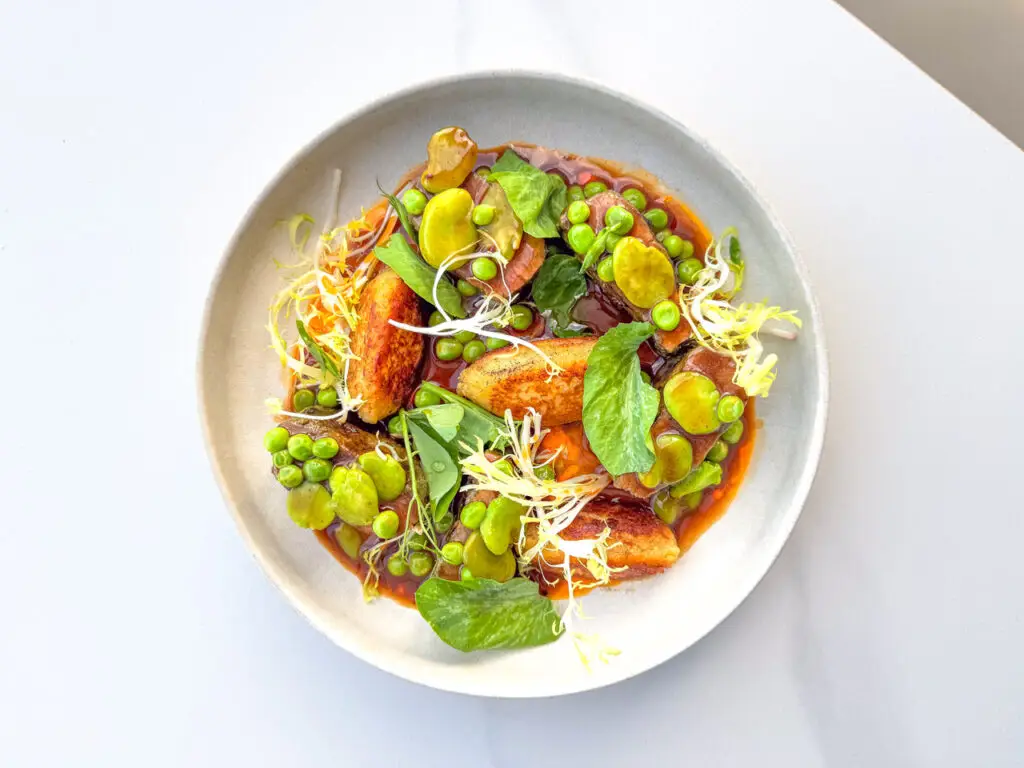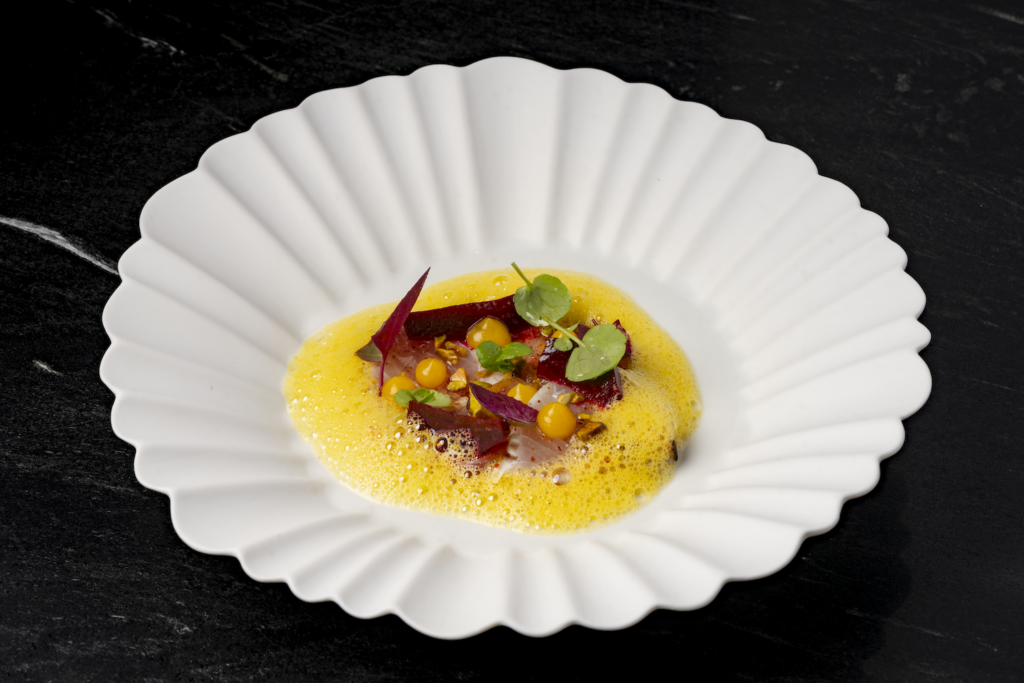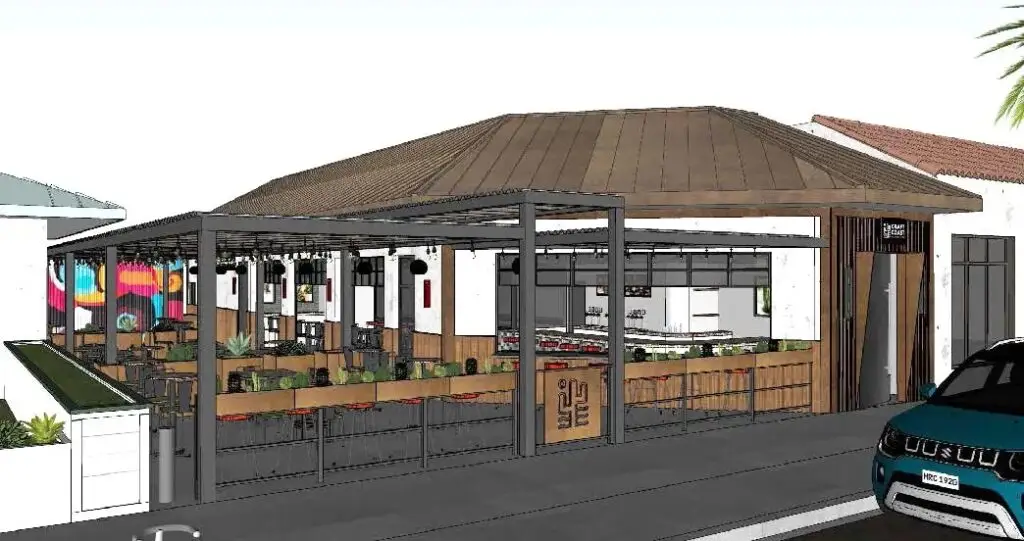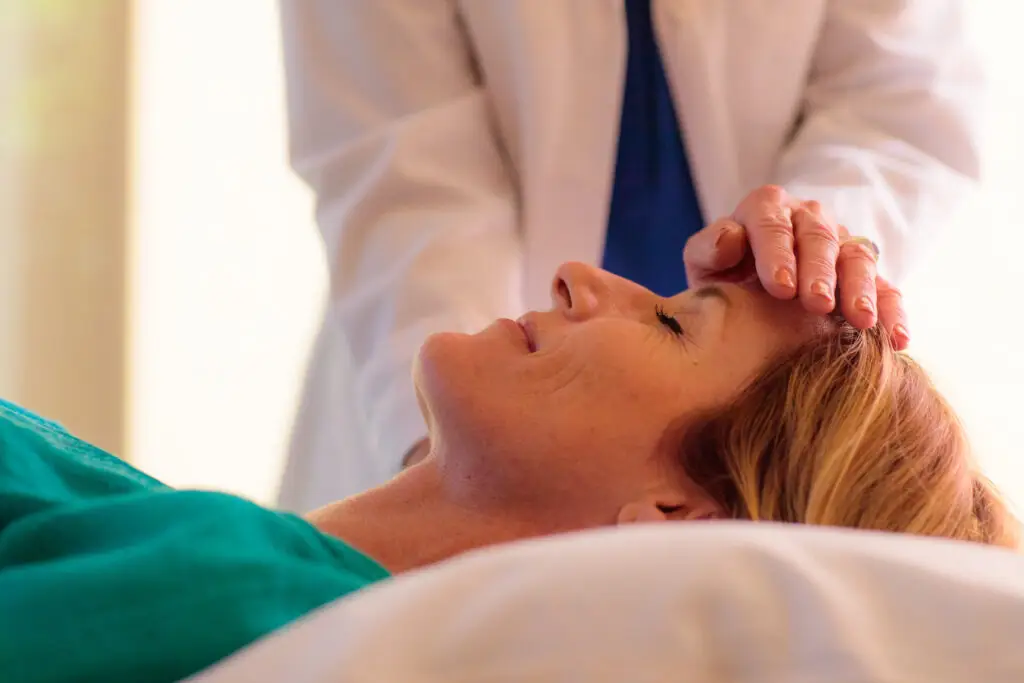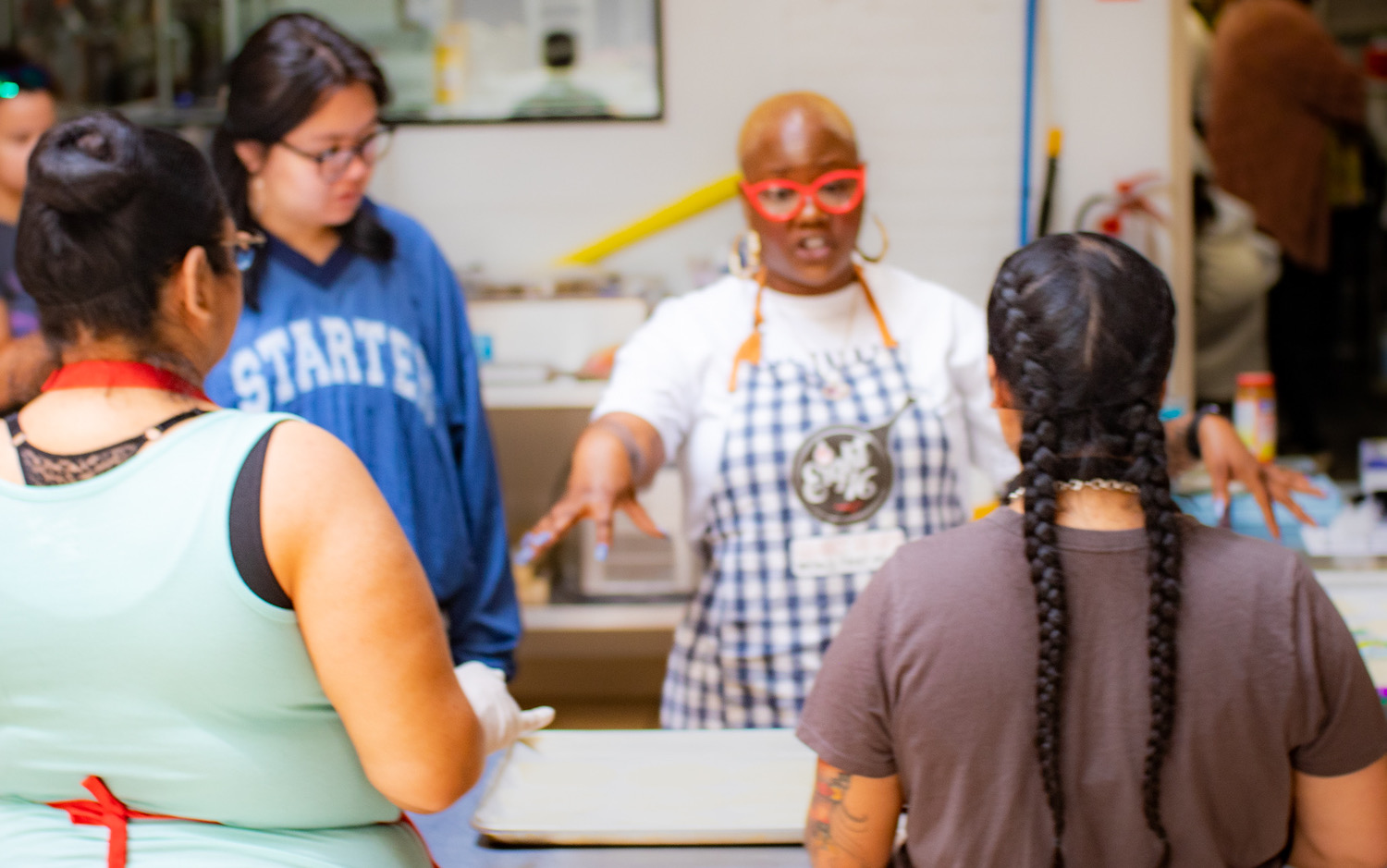A typical chicken pot pie recipe starts with a list of things to do: Make the dough, cook the chicken, chop the vegetables. But the recipe card Mercedes Tiggs hands out to the young people who sign up for her culinary therapy session at the Joe and Vi Jacobs Center’s community kitchen in southeastern San Diego begins instead with reminders to breathe and to set an intention—such as “relieve stress” or “master a new skill”—for the baking to come.
“Cooking is therapeutic for me. I figured it has to be therapeutic for other people,” says Tiggs, a licensed clinical social worker whose grandmother taught her to cook. Tiggs was in grad school, wondering how to find her niche as a therapist, when she formed the idea for Eight16 Culinary Therapy, a San Diego–based practice in which clients take part in individual or group therapy sessions while cooking a meal.
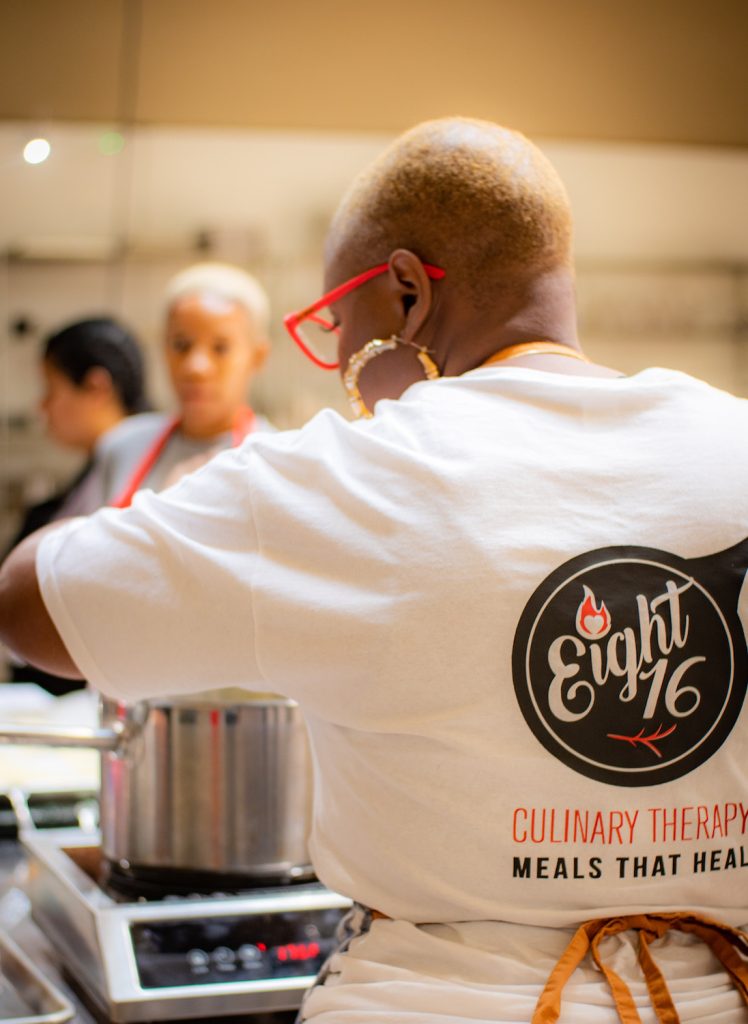
The Eight16 Culinary Therapy logo is shaped like a skillet, the staple cookware Tiggs’ grandma taught her to use when she was growing up.
The concept of Eight16 came to fruition in 2020 when Tiggs began sessions over Zoom. Clients gathered a list of ingredients beforehand, and she led them through a recipe while nurturing their mental health.
“You’re talking trauma, anxiety, and depression, but you get blueberry pancakes and empanadas,” Tiggs explains.
The importance of creativity to healing has long been touted by practitioners of art therapy. Culinary therapy is a variation of this. “Afterwards, you feel relaxed,” says volunteer Monica Gillespie, a social worker.
Clients also gain confidence. One participant was afraid to use knives but wanted to learn. She started with an apple peeler before graduating to a small paring knife during the first session. “Every class, the knife got bigger,” Tiggs recalls.
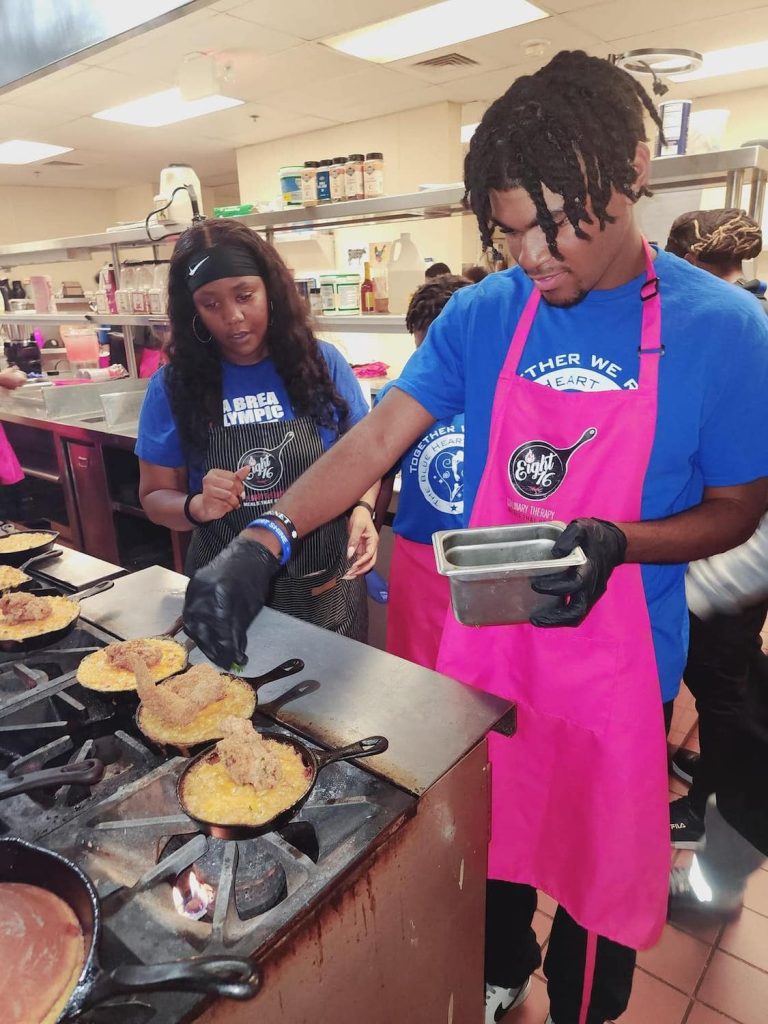
Over the last three years, Tiggs’ client base exploded to the point where she plans to train other therapists. “We keep growing and growing and growing,” she says. The County of San Diego Black Chamber of Commerce recently named Tiggs one of its 40 Under 40 Black entrepreneurs. Eventually, Tiggs wants to open a community kitchen of her own.
One of her clients is the San Diego County Office of Education (SDCOE), which uses state funding to offer monthly sessions for youth in foster care. It’s a particularly meaningful experience for Tiggs, whose five siblings grew up in San Diego’s foster system.
Participants learn mindfulness techniques while tackling new recipes. As the kids make their pot pies, they get reminders to check in with each sense: Smell the ingredients. Hear the sizzle of the pan. Watch vegetables transform as they cook down. Taste the sauce and notice the texture.
“Hardships—[those are] out of their mind right now,” Gillespie says. Instead, the students are fully focused on cooking.
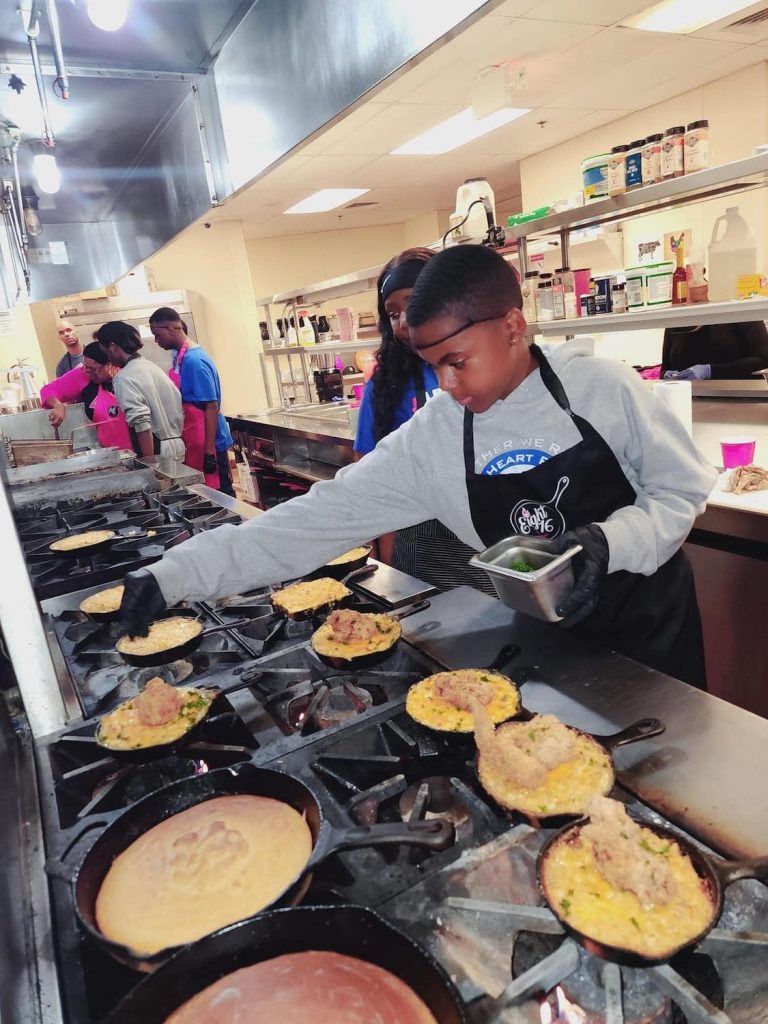
In addition to the therapeutic benefits, youth who attend gain life and social skills as they cook together. Tiggs’ team makes sure to encourage experimentation, even when things go wrong. Tiggs herself remains unflustered and kind as eggs break on the floor.
The session proves the truism that food brings everyone together, with CASAs (court-appointed special advocates, volunteers who spend time with youth in foster care and ensure their needs are being met) or guardians bonding with kids and the young people becoming tentative friends with each other as they collaborate.
PARTNER CONTENT
“This is innovative mental health[care],” says Violeta Mora, a project specialist at SDCOE.
Each student makes their own skillet pie and decorates it with dough. Once the pies come out of the oven, everyone shares a meal, practicing mindful eating. The students head home with extra food and the unique recipe card—reminding them that cooking is more than just assembling ingredients.

